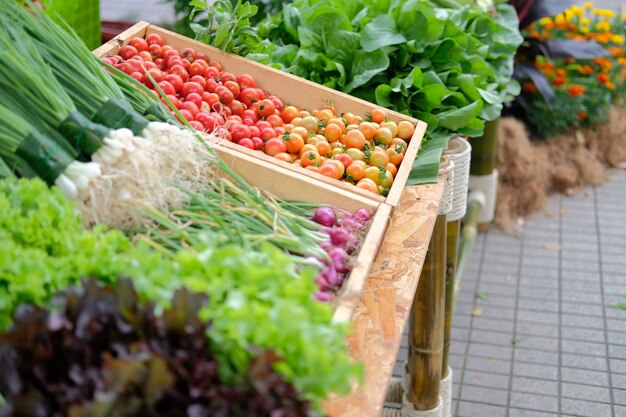A mobile farm shop is an innovative way for farmers to bring fresh produce, dairy, meat, or other farm products directly to consumers. It eliminates the need for middlemen, allows flexibility in reaching different markets, and creates opportunities for personal connections with buyers. Setting up a mobile farm shop requires careful planning and the right equipment to ensure success.
Step 1: Define Your Mobile Farm Shop Business
Before investing in equipment, outline your business goals and strategy. Consider the following:
- Target market: Who are your customers? Urban residents, local restaurants, or community markets?
- Products to sell: What will you offer—fresh produce, dairy products, eggs, baked goods, or processed items like jams and juices?
- Operational model: Will you sell directly at events, deliver pre-orders, or set up at local markets?
A clear plan will help you select the right equipment and vehicle for your shop.
Step 2: Select the Right Vehicle
The vehicle is the core of your mobile farm shop. Choose one that suits your needs and budget:
- Small vans or trucks: Ideal for larger operations with diverse products.
- Pick-up trucks with trailers: Great for farmers with a moderate range of goods.
- Modified tuk-tuks or carts: Cost-effective for small-scale setups targeting local communities.
Ensure the vehicle is reliable and has enough space for storage, displays, and refrigeration if required.
Step 3: Equip Your Mobile Farm Shop
To create a functional and attractive mobile shop, you’ll need the following equipment:
Storage and Display
- Shelving units: For displaying produce or packaged goods. Opt for adjustable, sturdy shelves.
- Crates and bins: Stackable bins or baskets help organize and display fresh produce neatly.
- Insulated coolers: For perishable items like dairy, meat, or leafy greens.
- Refrigeration units: A small portable fridge or freezer is essential for long trips.
Sales Tools
- Point-of-sale (POS) system: Mobile payment devices and apps to accept cash, cards, or digital payments.
- Scales: Digital or mechanical scales for weighing produce.
- Receipt printer or digital invoice app: To provide receipts for customers.
Utilities
- Generator or power source: To run refrigeration units or lighting. Solar-powered generators are eco-friendly options.
- Water containers: For washing produce or maintaining hygiene.
- Lighting: LED lights for evening operations or shaded areas.
Branding and Marketing
- Custom signage: Use banners or magnetic vehicle signs to display your farm name and contact information.
- Display boards: Chalkboards or digital screens for listing prices, specials, and product details.
- Flyers and brochures: Provide information about your farm, products, and contact details.
Step 4: Plan Your Inventory and Storage
Efficient storage ensures that products remain fresh and undamaged during transport.
- Use stackable containers to maximize space.
- Pack perishable items in coolers or refrigerated units.
- Label products clearly for easy identification.
- Keep a small stock of extra packaging materials, such as bags or boxes, for customers.
Step 5: Build a Route and Schedule
A successful mobile farm shop depends on reaching the right customers at the right time.
- Identify high-traffic locations, such as farmers’ markets, community centers, or urban neighborhoods.
- Establish a weekly or monthly schedule and communicate it to customers through social media or email.
- Use GPS apps to plan efficient routes and minimize fuel costs.
Step 6: Ensure Compliance and Safety
Operating a mobile farm shop requires adherence to local regulations and safety standards.
- Obtain the necessary licenses and permits for selling food.
- Ensure your vehicle complies with health and safety guidelines.
- Train staff in proper food handling and hygiene practices.
Step 7: Leverage Technology
Incorporate technology to streamline operations and reach more customers:
- Use online platforms to take pre-orders or offer delivery services.
- Set up a website or social media pages to promote your products and schedule.
- Use apps for inventory management to track stock levels and reduce waste.
A mobile farm shop is a flexible and profitable way to sell farm products while connecting directly with customers. By investing in the right vehicle, storage, and sales equipment, and planning routes and schedules strategically, farmers can maximize efficiency and profits. With thoughtful execution, a mobile farm shop can become a thriving extension of any farming operation.







